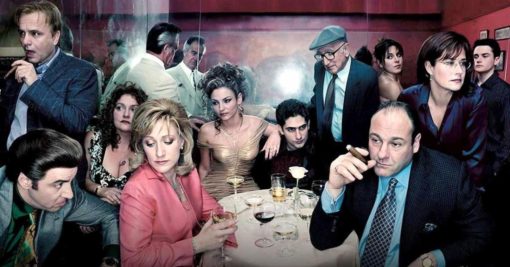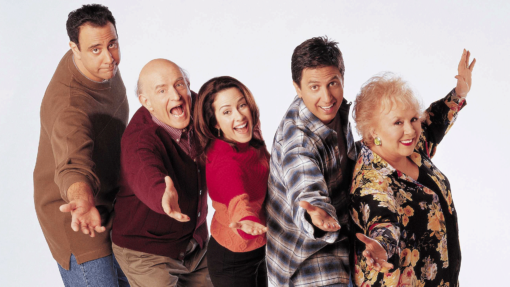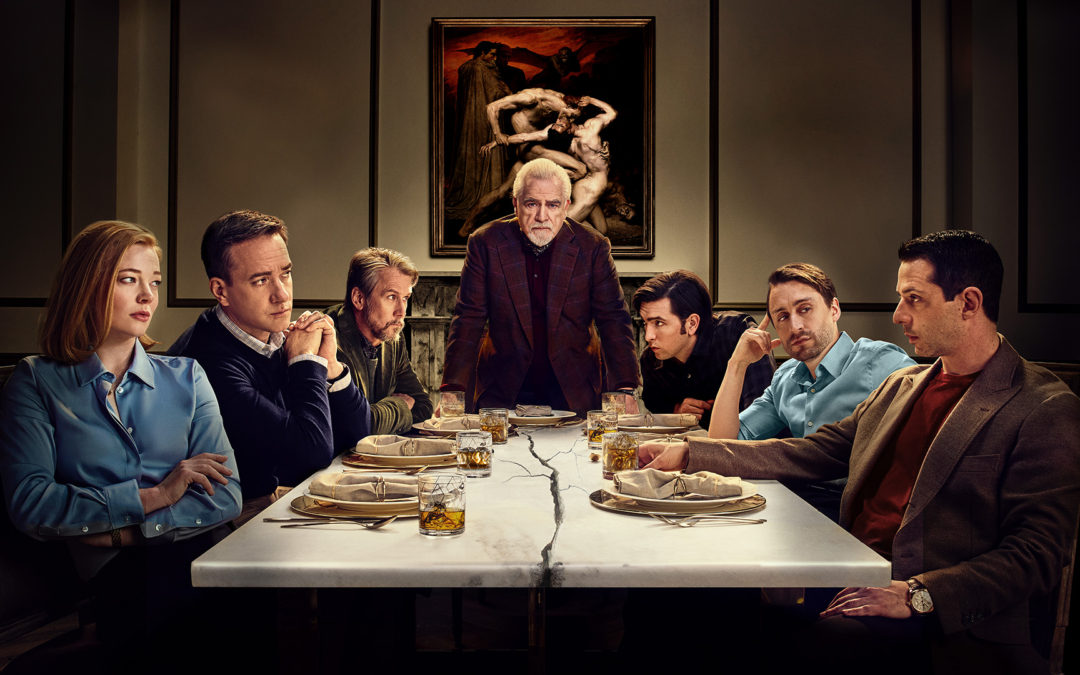HBO’s Succession won the Emmy for outstanding drama series in 2020. I am struck by how well it underscores the need to do one simple thing with a series’ characters, especially if they’re going to be not that easy to like and “root for.” And that one thing is to make them miserable.
I’ve written before about how audiences are sadists who like to watch people suffer and struggle, and how unlikable characters typically need to be heroic and/or facing enormous constant problems, to get an audience to want to follow them. But what about a show like this, where nothing heroic is happening, and it’s hard to strongly care (at least for me) whether any of the people get what they want? Where the “problems” are the very definition of “high class” in that we’re following the family of a billionaire with pretty cushy lives, whose biggest concerns are about what piece of the empire they’re going to inherit and control?
The answer lies in their constant misery. When people want something badly enough, and get the crap kicked out of them over and over, but they still keep fighting, and losing, and struggling, and looking for new avenues to pursue… well, we can’t help but at least feel for them on some level. It’s not quite a This is Us–level empathy and connection, but clearly that’s not what the show’s creators are going for. (Nor do they need to reach the same number of viewers to be considered a success — which is good, because the viewership of This is Us is twenty times larger.)
HBO has been testing the limits of how “likable” the primary characters in a series need to be, for some time. The Sopranos was passed on by the broadcast networks, probably for this reason, but found a home on HBO, where it made sure to give each character who got stories a certain humanity and set of wants and needs that elevated them from “violent mobsters” to three-dimensional people. In the pilot, for instance, we learn that Tony Soprano is having panic attacks and is humiliated when he starts seeing a therapist. Also his mother might be trying to have him killed. And he can’t get any respect from his kids All this makes it easier to connect and relate to him, which might have otherwise been too difficult. (He also lives in a high stakes world where someone could try to take him down or put him in prison at any time.) The show definitely wasn’t about people you might want to be “friends” with and invite over to your house. You might not want to live in their world. But their misery coupled with life situations that were easy to feel something about helped you get past that.

For my money, HBO’s Veep, despite being a comedy, took “hard to like and care about” to a whole other level. While there were always a couple of “pathetic” or “out of it” characters who you didn’t so much hate as pitied, its core cast were mostly pretty shark-like, self-absorbed, and kind of terrible (or at least very dark) people. It was almost like its creators were challenging the audience to try to find someone to connect to emotionally, and making sure they largely came up empty. But there was one thing they made sure to do (along with incredibly funny and smart writing): make them miserable. Can you imagine an unhappier bunch than the people on this show? You can’t? Well you might try Succession.

All three of these shows found a way to entertain an audience by pulling back the curtain on a fascinating world of power that most of us could never dream of being a part of, and making it all seem strikingly real. They also feature some great visual spectacle, as well as characters that you kind of can’t turn away from, even if they can be nasty, self-absorbed, and deeply flawed. Those things definitely help draw an audience in.
But to my mind, none of that would work if the show didn’t focus on characters who are being beaten up, punished, and never getting what they want. In other words, miserable — but always actively pushing toward a desired outcome That’s key. If they just gave up and were passively suffering, so would the audience. And their situations need to keep evolving in compelling ways — challenging them for new reasons and from new directions.
But lest you think this principle of “make them miserable” only applies to dark premium cable type shows with characters that are hard to like or relate to, I want to draw your attention to a very different type of show — which, being on a broadcast network, had to capture a much larger audience and be judged much more by each week’s ratings than any HBO show: Everybody Loves Raymond.

These characters might mostly have smiles on their faces, but consider a typical episode and what each is going through. Most of the time, all five are unhappy. There’s some fresh problem that is bothering each of them that they want to solve. And their life can never quite be what they want it to be. Raymond wants an easy life with no conflicts or responsibilities, and plenty of sex. His wife wants a proactive loving husband who will stand up to his mother. His mother wants to control their lives. His brother doesn’t want to be the “second son” in this family, but always will be. And his father, well, he doesn’t typically get stories of his own, but he’s not what you’d call a ray of sunshine who gets what he wants. There is always something to complain about.
So if there’s one thing I’d advise, in coming up with a series idea, that is perhaps more important than any other, regardless of genre, it’s this: find the reasons why your primary characters are constantly unhappy, even in hell, and suffering through every episode. You almost can’t err too far in this direction — as long as you keep them active and find a way to make it an entertaining process that keeps evolving. But so many scripts fail for the opposite reason — even if the characters are likable, they’re just not miserable and under siege enough for an audience to truly connect.



Love this Erik!
Just watched the video of your interview on youtube. You never fail to impress when it comes to talking about story… clear and succinct as always!
I hope you’re well.
A
What about shows for kids?
Yes, even then! I’d say the level and type of “misery” is different, and less dark typically, but you still want your main character(s) — adult or child — to have something that really matters to them, that they can’t have (or something important is threatened or taken away), and all the emotions that go with that… Even stories aimed at children and about children go for that misery factor more than you might assume!